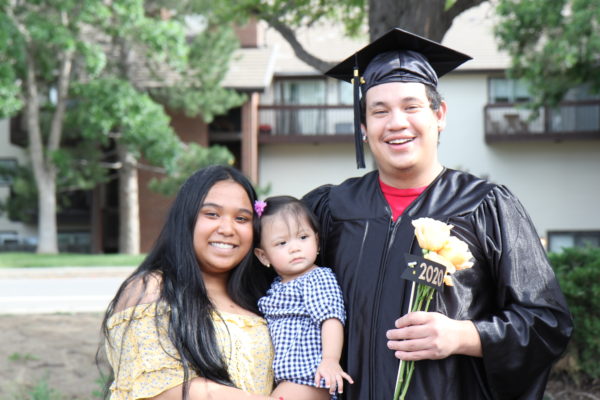By Amelia Federico Soft skills. Durable skills. Essential skills. Core skills. Whatever you call them,…
Under the Microscope: CYC Staff Members Examine Misconceptions About Our Work

In our work at Colorado Youth for a Change, as is often the case for educational organizations, we sometimes encounter misconceptions. The barriers and deterrents to a successful education are not always visible. Combating these misconceptions is part of our responsibility to respect and uplift the students we serve. We wanted to hear from our program staff and other staff who have direct experience in these subjects as part of their day-to-day life.
What misconceptions about students and/or the education sector have you encountered? We’d love to continue this conversation. Please send thoughts to our Development and Marketing Manager Emily at EmilyL@youthforachange.org. She will direct your thoughts or questions to the appropriate staff.
Misconception: Students drop out of school because they don’t care about school.
Answered by Rebbecka Jackson, Reengagement Specialist
This is definitely a myth. Students don’t leave school. They may literally walk out but something or someone usually pushes them to that point. There are youth that deal with so many things outside of school, that it becomes hard for them to actually deal with school itself and the reality of failing or graduating.
I also think it’s the spotlight that gets shown over the student’s lack of credits, lack of participation, lack of attendance, lack of contact with parents or guardians, or lack of contact with the student themselves that ultimately pushes them out. Instead of looking at those “lacking” patterns and documenting them as reasons why the youth cannot attend a particular program or school, why not use them as ways to figure out where you can support this youth?
Thinking back to a specific student I worked with, he told me he had anxiety but he only felt it when he went to school. He said it grew worse and worse whenever he returned. He eventually stopped attending altogether. He said no one ever asked him about how he was genuinely feeling/doing but instead focused on how much he had missed and how far behind he was. Graduating or even attending school simply seemed impossible for this student.
Misconception: Twenty minutes a day is not sufficient to change students’ reading abilities.
Answered by Briana Schlesinger, Colorado Reading Corps Program Manager
A lot can happen in 20 minutes! CYC’s Reading Corps interventions are designed to provide supplemental practice of essential reading skills. Reading Corps tutors meet with their students every day to do the following:
- meet one-on-one to reinforce skills that have already been introduced in core instruction
- provide extended practice to build essentials skills
- gather progress data to help make informed decisions
- expose them to a wide variety of words to build their vocabulary
Through our Reading Corps program, we conduct internal evaluations annually and commission independent external evaluations every three years. These studies continue to show that this model works to improve students’ literacy skills – 20 minutes at a time.
Misconception: Schools and teachers are not achieving benchmarks with their students so someone else has to intervene.
Answered by Mary Zanotti, Executive Director
Student achievement and engagement in school has been different from student to student. No one school or one teacher can be expected to meet the wide array of achievement levels in their schools or classrooms. Colorado Youth for a Change partners with schools to be part of their comprehensive plan to support students. Our tutoring programs can provide that extra support a particular student needs and our student engagement program can provide another caring adult to help make a student feel more connected to their school community. Our services are just one piece of a school’s already robust ecosystem.
Misconception: Schools already have teachers and counselors. Why do they need these additional layers of support provided by organizations like Colorado Youth for a Change?
Answered by Shelby Scott, AmeriCorps VISTA Grants Associate
Schools need additional supports from organizations like CYC in order to meet the needs of students amidst unprecedented changes to the educational landscape. Following the COVID-19 pandemic, students, teachers, and schools have seen existing obstacles, like teacher and skilled laborer shortages, worsened by the pandemic. About one third of Colorado’s teaching and special service provider (SSP) positions remained unfilled in 2021, but many of these positions were in rural districts which struggled with staffing even before the pandemic, according to the Colorado Department of Education. Socioeconomic barriers to student success have also increased in recent years due to disruption in access to basic needs, loss of the structure and social-emotional support that schools provide, and increased household and financial instability.
In addition to these factors, entirely new obstacles for students have arisen in response to the pandemic, including significant learning losses, the social-emotional impacts of long-term remote learning, and retention struggles associated with periodic quarantines. In the spring of 2021, just 29.5 percent of Colorado 8th graders met expectations in math and just 39 percent of 3rd graders met expectations in reading, according to the Colorado Measures for Academic Success (CMAS). Chronic absenteeism and truancy rates have risen in most school districts, and graduation rates for students of color, migrant students, and English learners have all fallen after years of progress.
CYC’s unique continuum of programming, including Early Learning Corps, Colorado Reading Corps, Colorado Math Corps, and Corps for a Change, is designed to meet students where they are. By partnering with districts, schools, and educators across the state, organizations like CYC are able to help students meet their changing needs and pursue long-term educational success.
